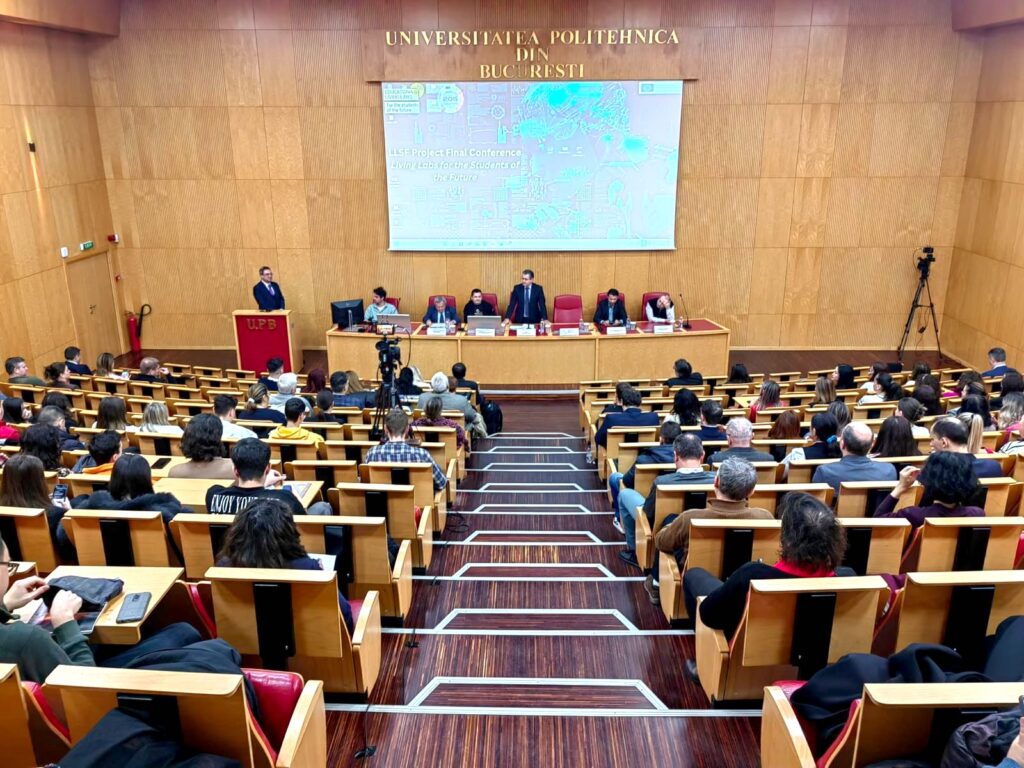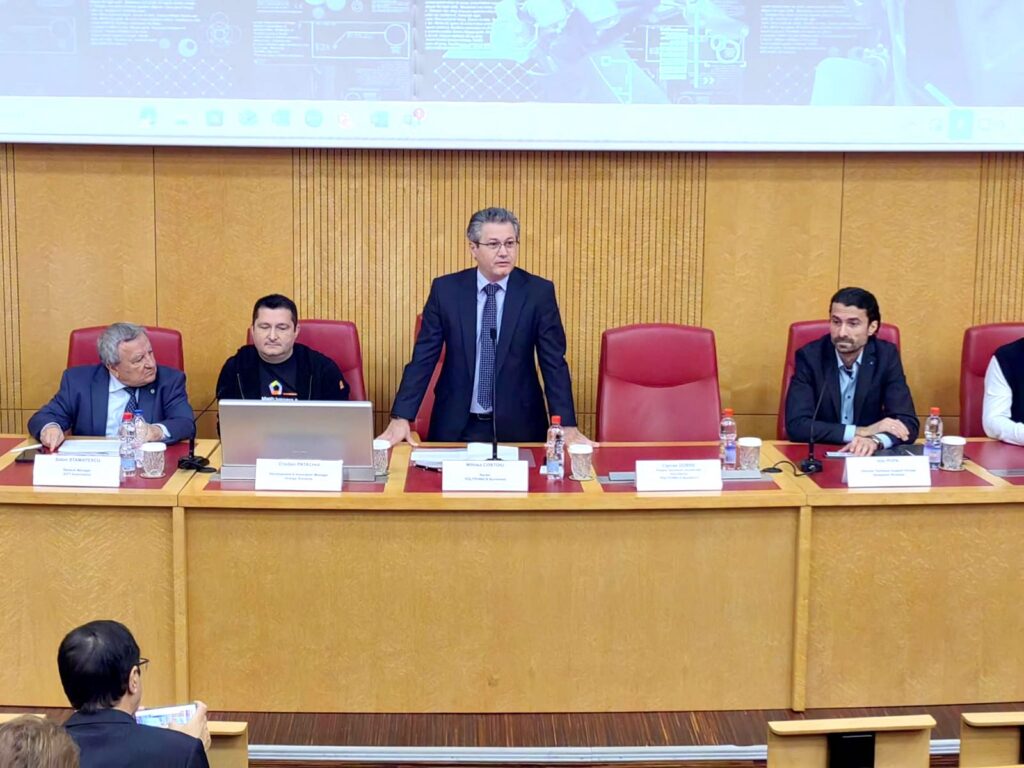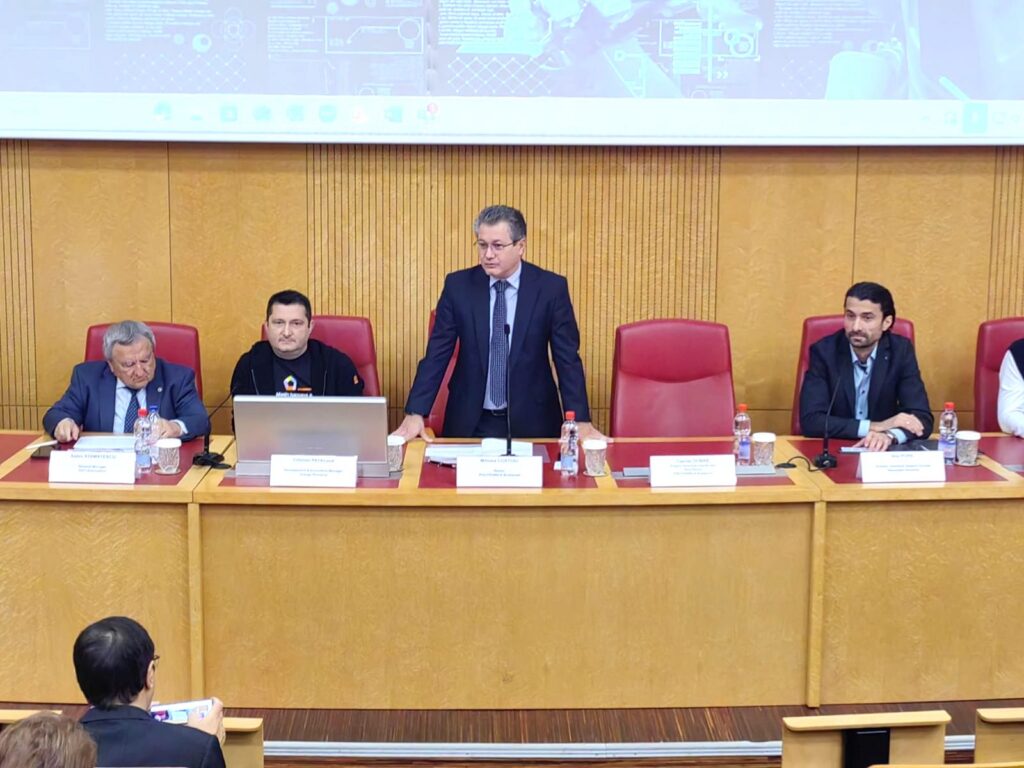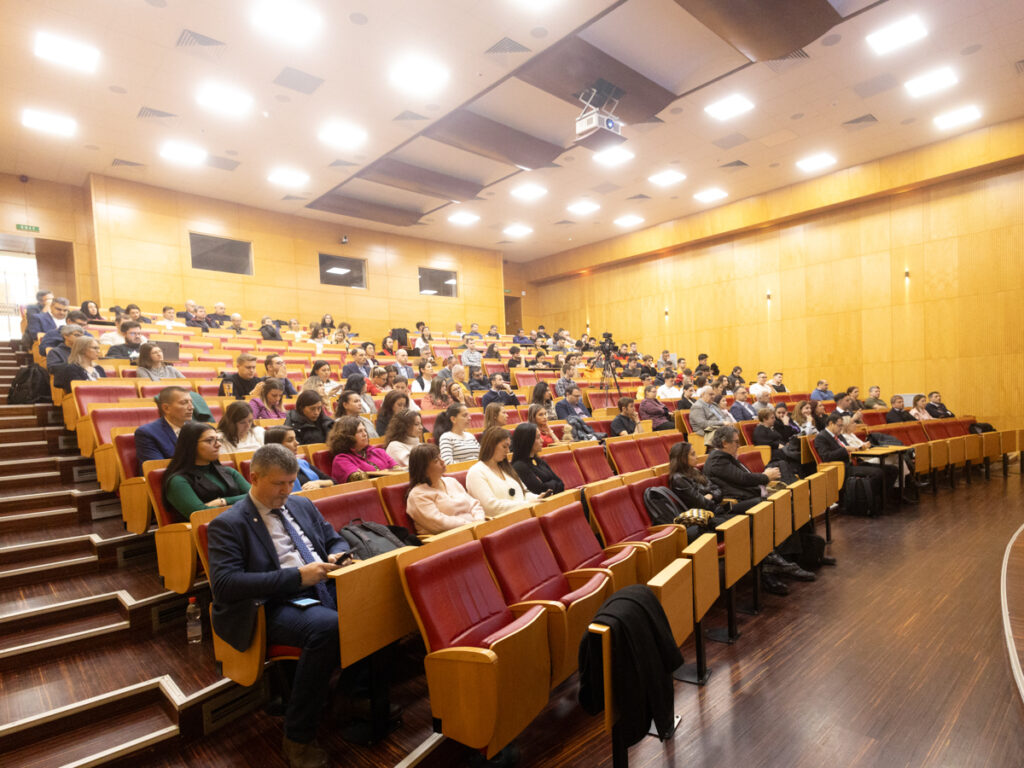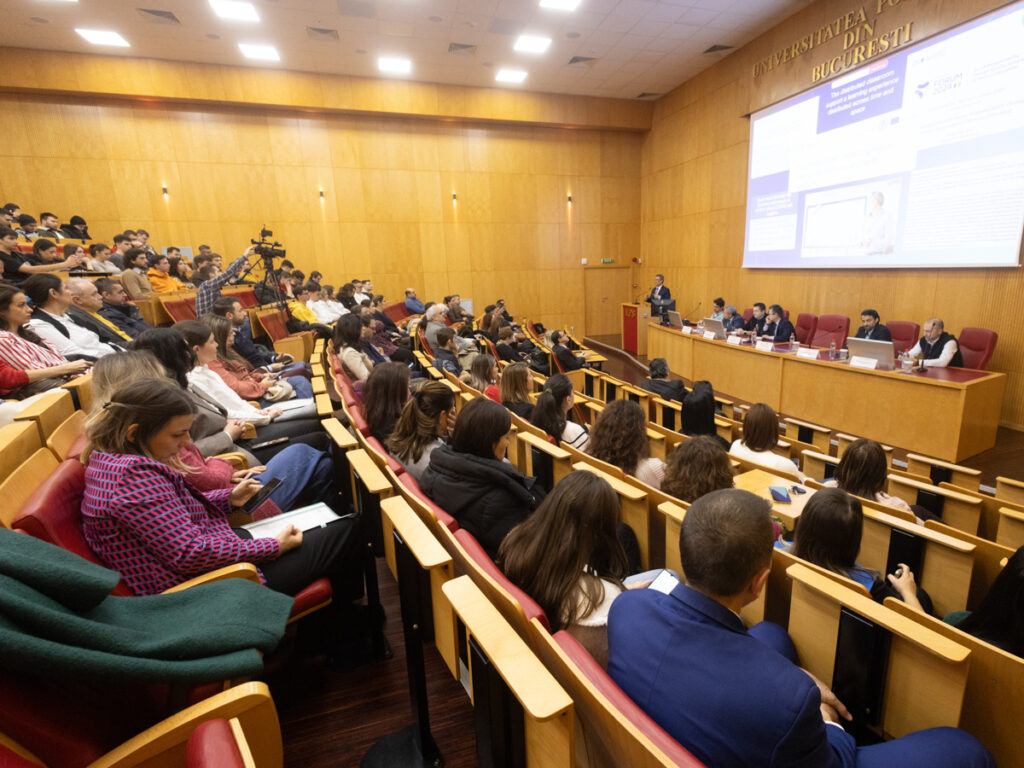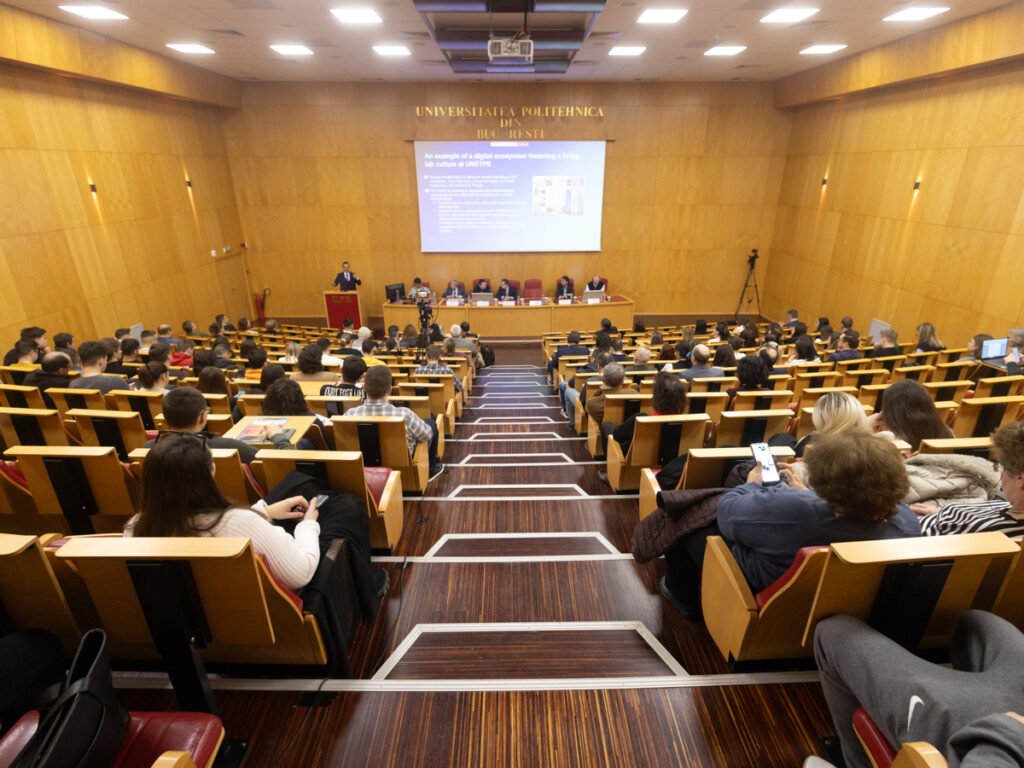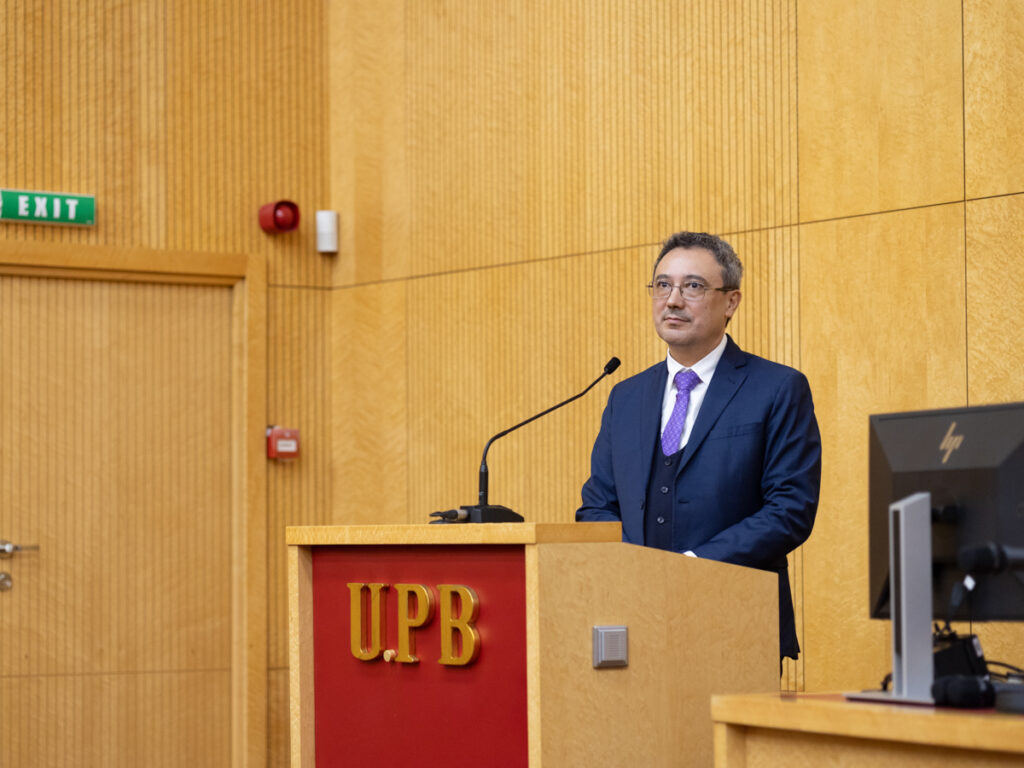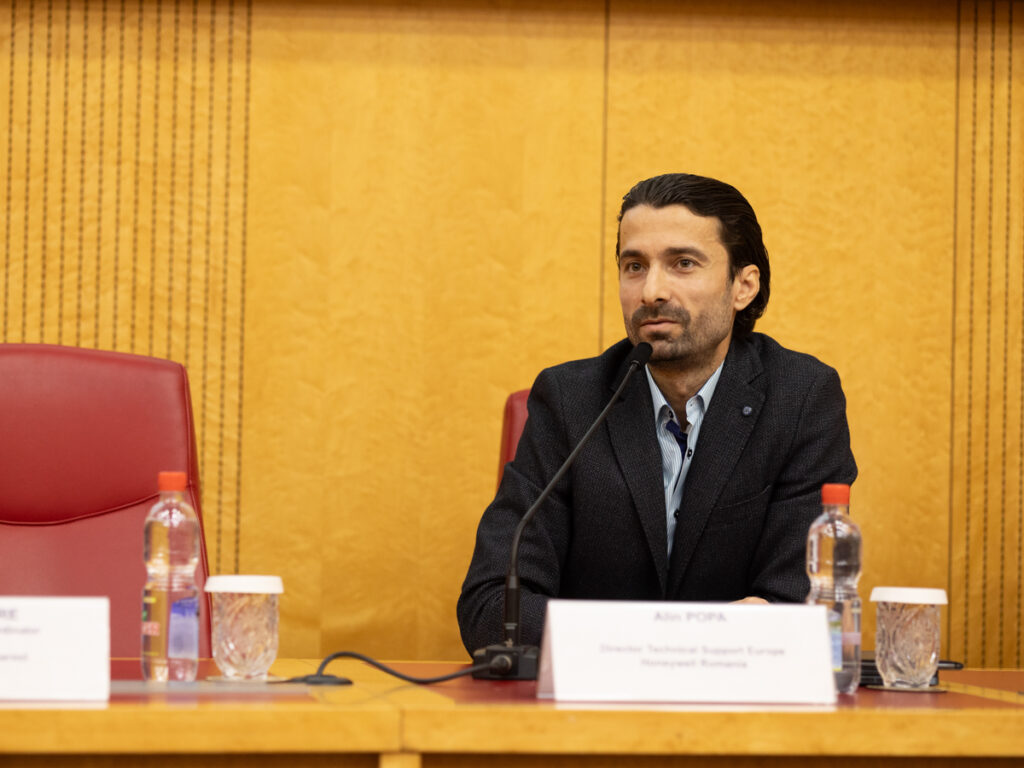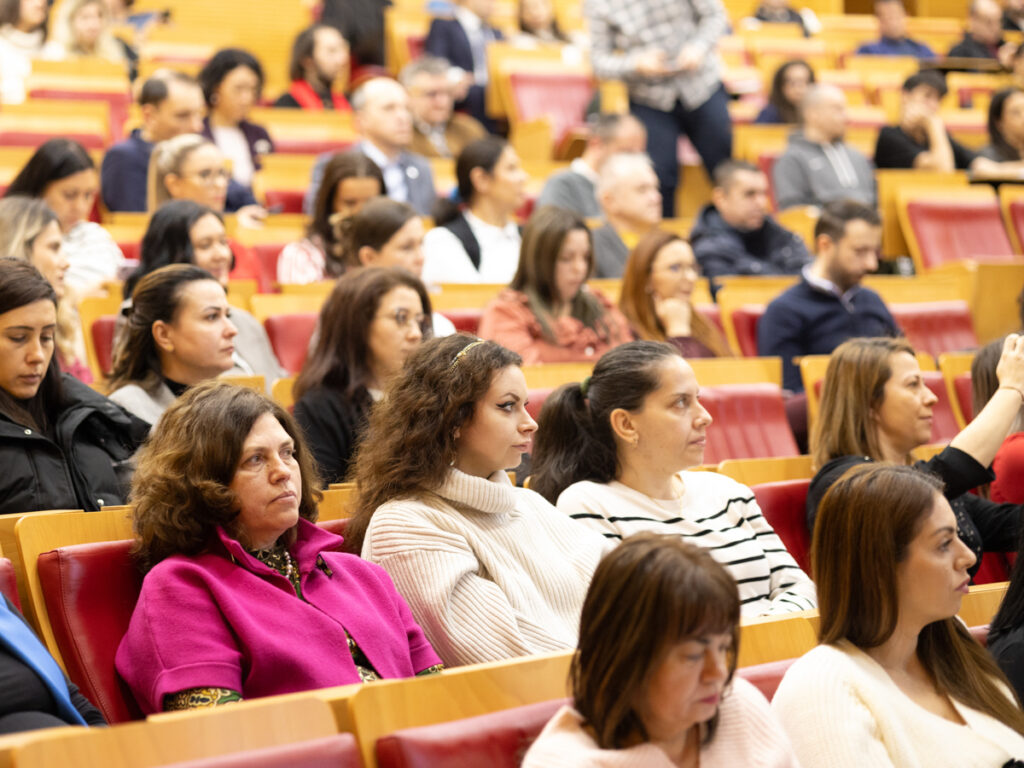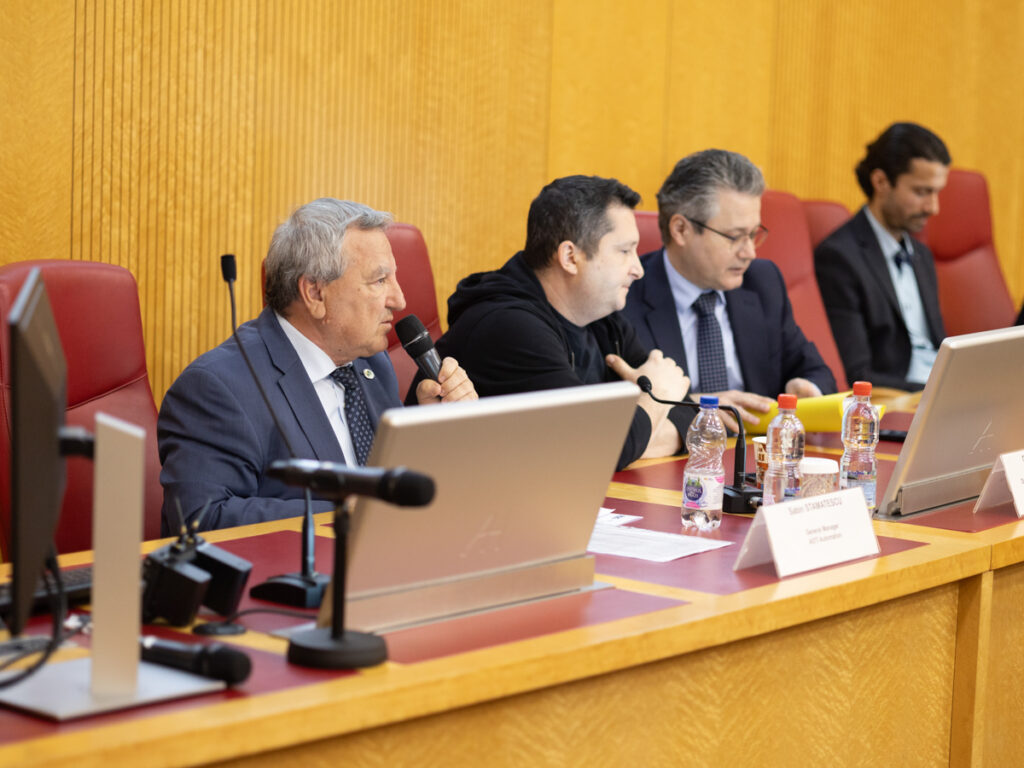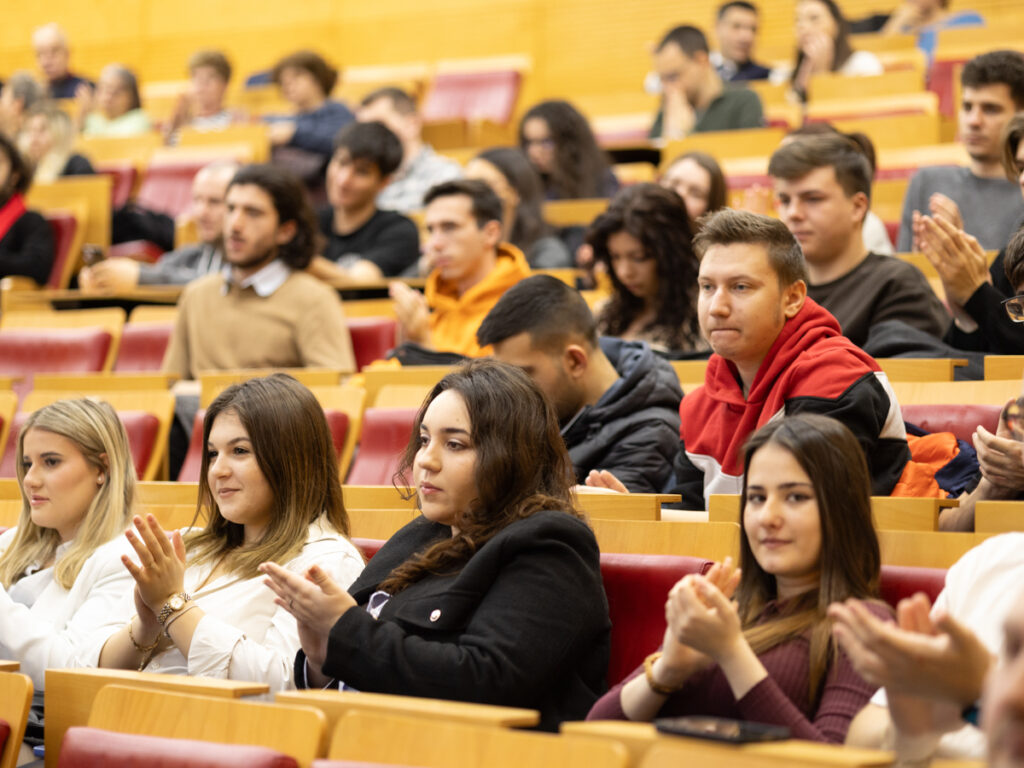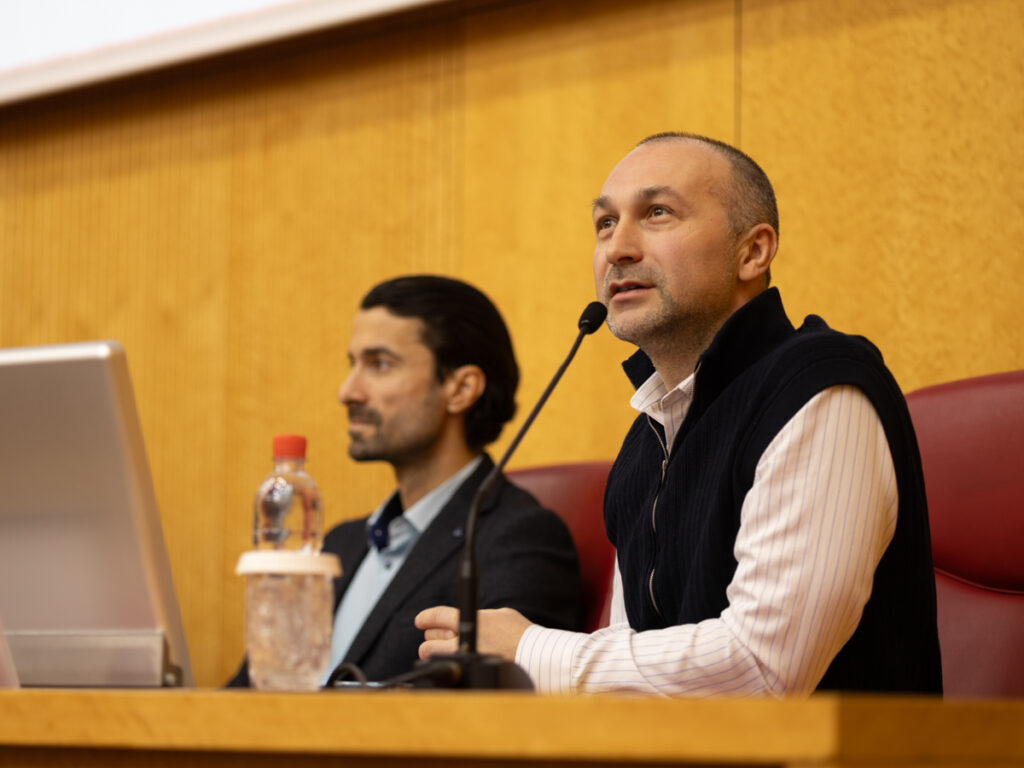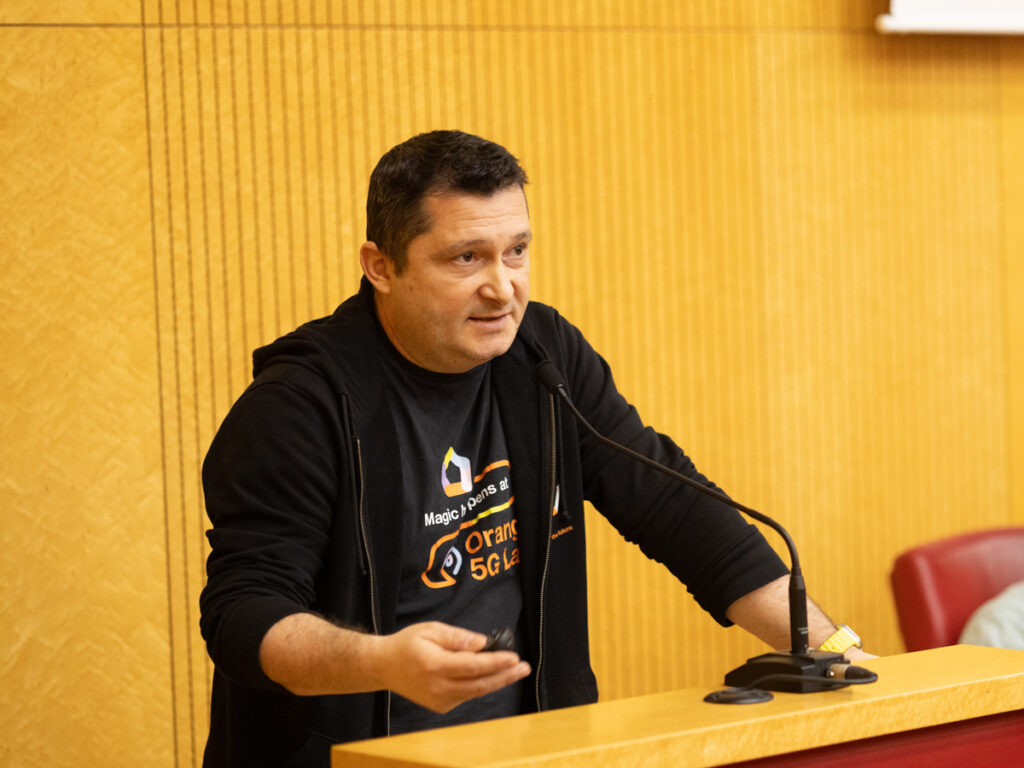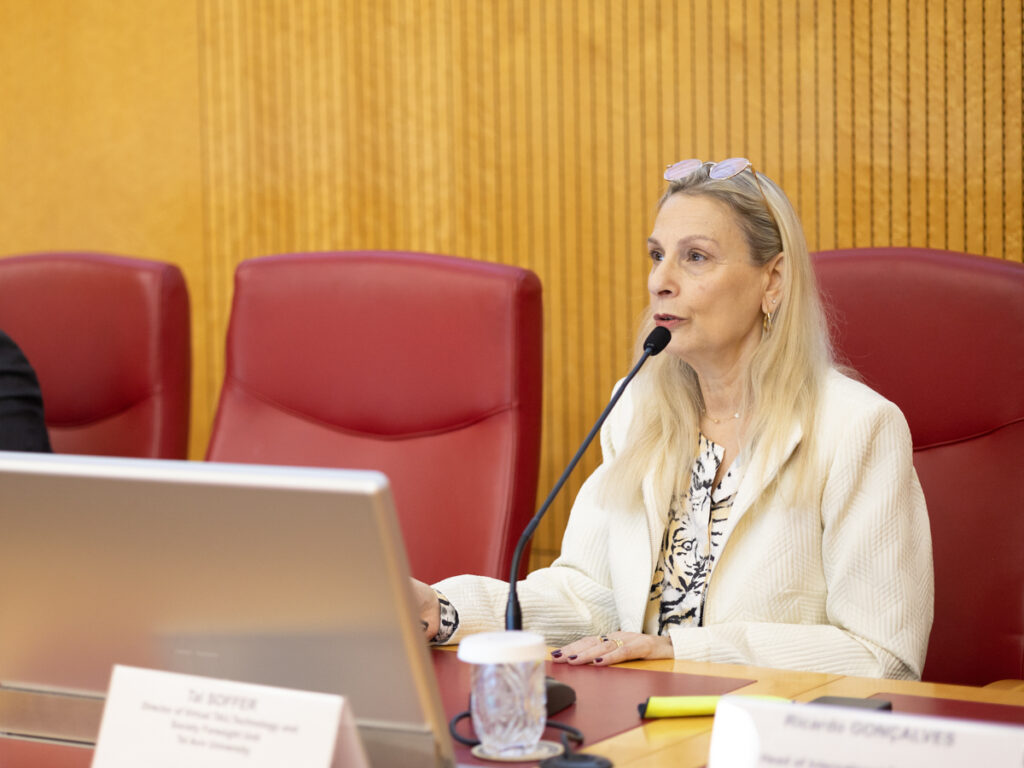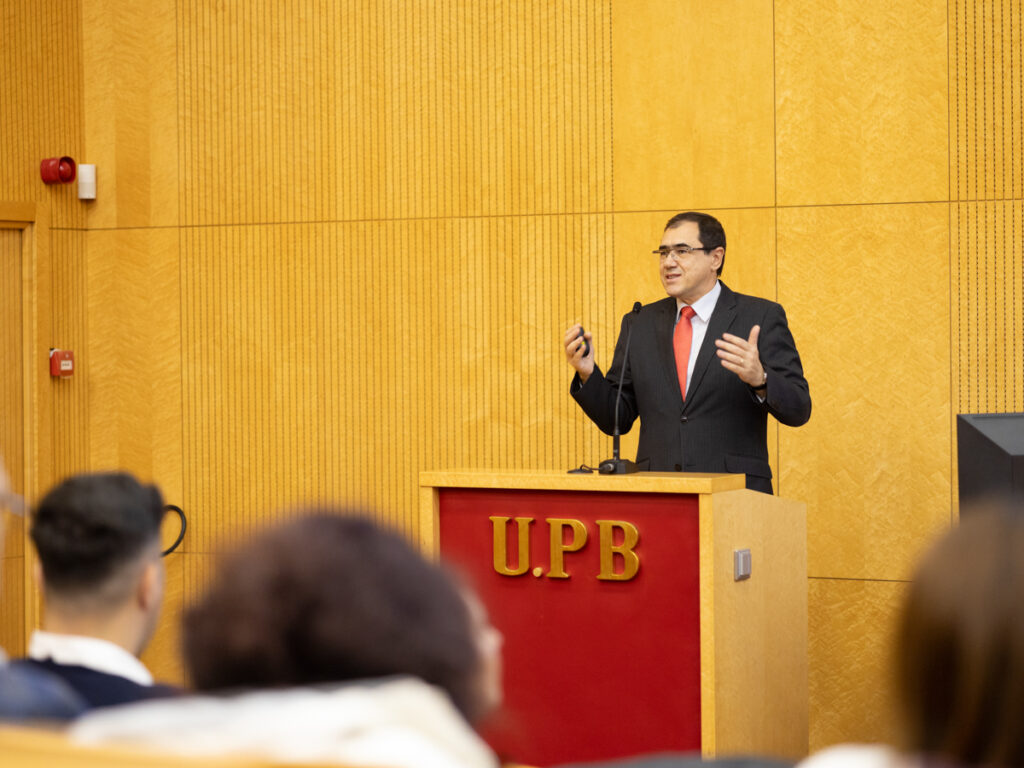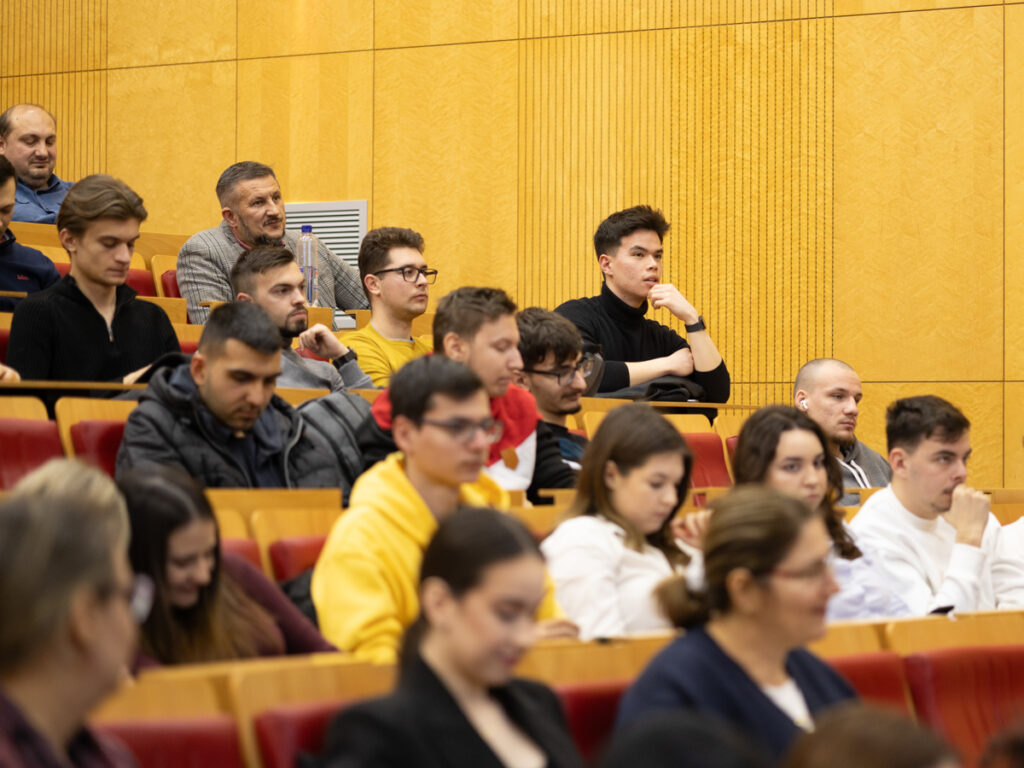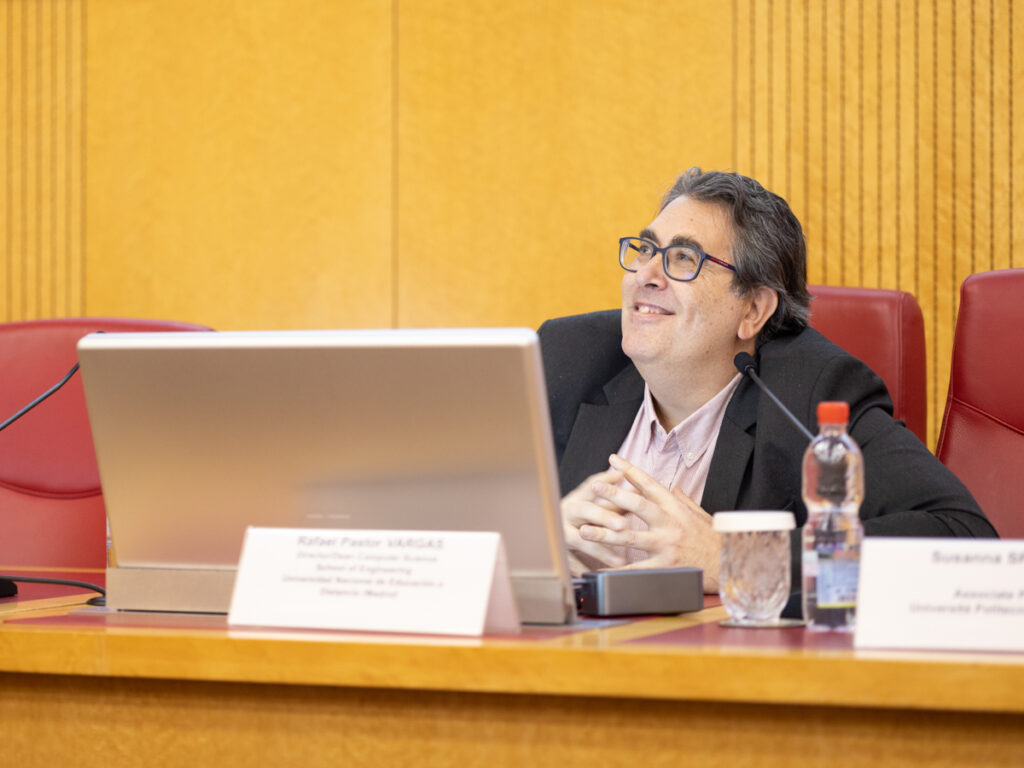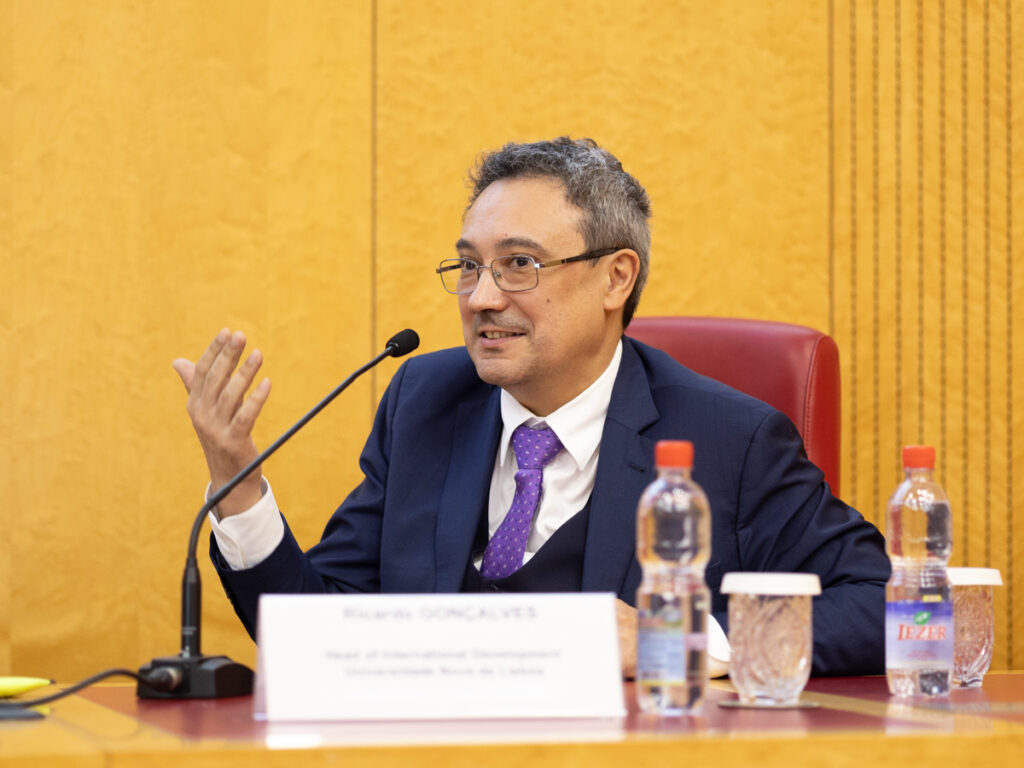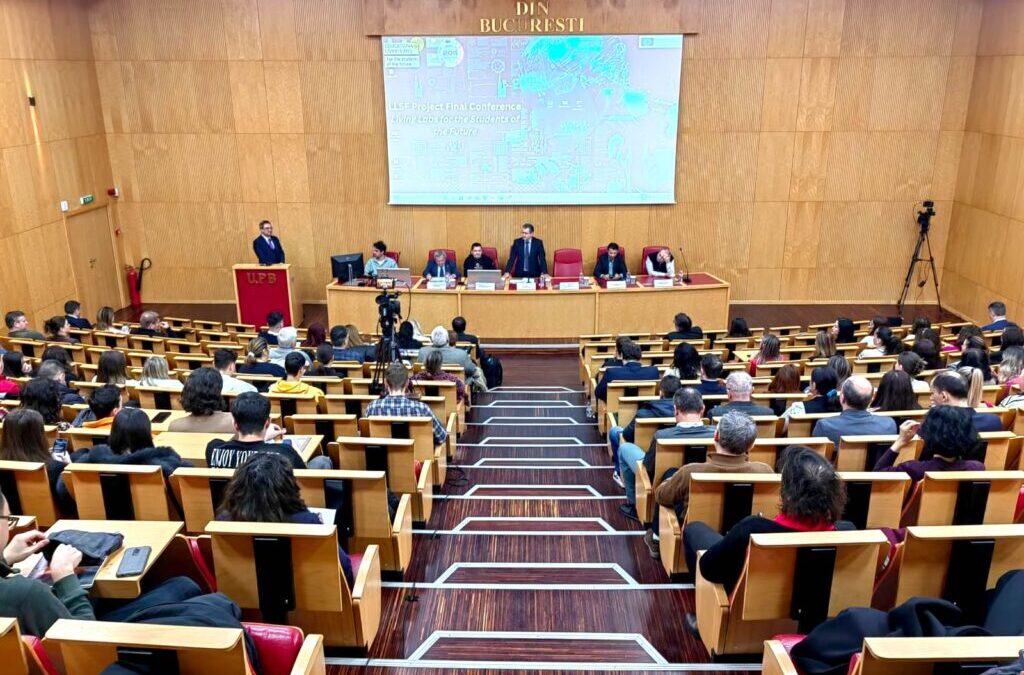January 15, 2025
Today, the National University of Science and Technology Politehnica Bucharest hosted the final conference of the “Education 4.0: Living Labs for the Students of the Future (LLSF)” project, marking the culmination of a transformative initiative aimed at enhancing educational practices and fostering innovation in ICT education.
Launched in 2021 and implemented through the ERASMUS+ program, this groundbreaking project was led by UPB in partnership with prestigious universities, including Tel Aviv University (Israel), Universidad Nacional de Educación a Distancia (Spain), Universidade NOVA de Lisboa (Portugal), and Università Politecnica delle Marche (Italy). The initiative focused on developing a network of intelligent, interconnected digital laboratories designed to equip students with cutting-edge skills while addressing the evolving needs of industry.
The primary objective of the project was to create a state-of-the-art educational tool that integrates emerging technologies such as Big Data and the Internet of Things (IoT) into the academic curriculum. By providing students with access to advanced digital laboratories, the project sought to bridge the gap between academic learning and industry requirements, ensuring graduates are better prepared for the demands of the modern workforce.
“This project represents a milestone in our commitment to innovation and excellence in education. By fostering collaboration across borders and sectors, we are empowering our students and creating a robust foundation for the future of ICT education, but also for the synchronisation with the industry”, stated Prof. Dr. Mihnea Costoiu, Rector of Politehnica University of Bucharest.
The “Education 4.0: Living Labs for the Students of the Future” project brought together academic institutions, industry leaders, and policymakers to create a dynamic educational ecosystem. Participating industry partners, including Honeywell Romania, Adobe Romania, ASTI Automation, and Orange Romania, which will play a critical role in the pilor platform of the project and in aligning the project’s future outcomes with real-world needs.
These collaborative efforts will not only transform the learning experience for students but will also establish a network of high-performance laboratories across multiple countries, fostering knowledge exchange and innovation.
As the project concludes, is sets the stage for a further development of the created dashboard. The tools and methodologies developed through this initiative will serve as a beginning for expanding what living labs can do for education, research and industry.
